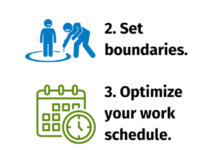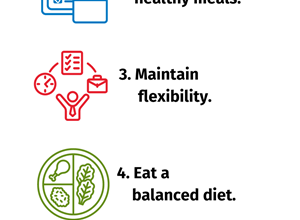9 Effective Ways For Building Confidence In Nursing

*articles contain affiliate links*
Many new nurses struggle with anxiety as they face unique challenges while transitioning from nursing school to a career. Use these tips for building confidence in nursing to help reduce stress and become the proficient nurse you want to be.
Nursing school provides excellent training to get out and start your career as a nurse. However, nursing school isn’t the same as actually being in the workforce, and many new nurses struggle with time management and confidence in their nursing skills (I did, too!).
Nurses fresh out of nursing school often feel like they’re in way over their heads. Confidence often seems in short supply, which can hinder the quality of patient care and daily workflow. Thankfully, there are helpful things you can do to stop questioning your skills and build your confidence.

9 Ways For Building Confidence In Nursing
While nursing is a rewarding job most of the time, every single nurse (even experienced ones!) can experience moments of self-doubt. Use these tips to banish self-doubt and increase your confidence – and competence!
1. Find A Seasoned Mentor
Mentors play an essential role in guiding and supporting new nurses as they translate the skills learned in nursing school to the real world of patient care. Although finding a mentor can be helpful in any field, it’s vital in nursing.
A mentor can help teach, serve as a sounding board, and act as a champion when you need one. Sometimes finding a great mentor happens naturally, while at other times, finding the right mentor can be challenging. Look for these qualities in a great experienced mentor:
- Encouraging
- Supportive
- Trustworthy
- A fantastic listener
- Resourceful
Whether you have a formal mentor or not, build strong relationships with supervisors, instructors, and experienced nurses because they can all offer learning and support. When you have support, it will help you feel more confident and make better decisions.
2. Improve Organizational And Time Management Skills
Since nurses do a lot of juggling between the needs of different patients, administrative duties, and more, staying organized and managing time effectively is essential.
Although new nurses have the necessary clinical skills to be successful, it takes time to figure out your ideal workflow to utilize those skills and maximize productivity.
Excellent time management and organizational skills help reduce stress, improve mental health, maintain high-quality patient care, and create an efficient workflow so that you aren’t staying late after your shift to finish work.
3. Hone Your Knowledge And Skills
You know that old phrase “knowledge is power?” While that may be true, knowledge is also confidence when it comes to nursing.
As you work toward building confidence in nursing, ensuring that you’re up to date on procedures and skills in today’s ever-changing healthcare environment will help you make tough decisions and provide high-quality patient care.
Practice new skills, ask questions when you aren’t sure about something, and stay informed on any new protocols. Go back to school to attain advanced degrees or certifications. The most confident nurses are lifelong learners who are constantly building their knowledge base and skill set.
4. Know Your Limitations
We all have them: areas of weakness. The best nurses know their abilities and limitations and ask for help when needed. Although it may seem like confident nurses don’t need to ask for help, the fact is that we’re all human.
No nurse is incredible at every aspect of the job, and having confidence doesn’t mean you must do everything yourself. In fact, it means the opposite – knowing when you need help is a form of building confidence in nursing.
Self-reflection is an essential aspect of knowing strengths and weaknesses. Nurses who are aware of their strengths and weaknesses can utilize other resources. This allows them to demonstrate confidence in their skills, accept help as needed, and provide excellent patient care.
5. Make Time For Self-Care
How can you continually give and give to patients without replenishing your own bucket? The truth is that you can’t. Nursing is extremely rewarding, but it can also be a demanding and stressful career.
All nurses need to learn how to handle the physical and emotional toll it can take by making time for self-care.
Avoid self-medicating with smoking, alcohol, or other harmful habits which can hinder your competence and, ultimately, your confidence in nursing.
Instead, learn to rely on healthy self-care choices such as nutritious eating, getting enough sleep and exercise, and regular check-ins with a mentor, trusted coworker, or therapist. All of these tools can help nurses reduce their stress levels and build confidence in nursing.
Check out our Essential Self-Care Ideas and Destress Tips For Nurses for even more tips!
6. Improve Communication Skills
Nursing is a field that requires a ton of interaction with a huge variety of people. There will be times when you need to ask for information and other times when you need to deliver information at various levels of understanding to different people (ex: doctor or coworker vs. patient or family member).
Excellent communication skills are essential for weeding through all the information you receive to pulling out the critical pieces. And nurses who can learn to deliver pertinent information to the necessary people in a way that makes sense to them
7. Avoid Comparing Yourself To Others
Although we all compare ourselves to others occasionally, nothing will destroy your confidence in nursing faster than comparing yourself to your coworkers.
Let experienced nurses and managers (or administrators) serve as teachers and inspiration, but don’t diminish your own achievements and skills by comparing yourself to theirs. Everyone has strengths and weaknesses – including incredible nurses!
Beyond that, some situations will shake our confidence (it happens to all of us). Focus on learning and improving your skills so that you’ll have self-confidence when facing challenges.
8. Networking
There are some fields of work where it’s naturally difficult to network and get to know coworkers (IT, for example). However, nursing is different because it’s more of a team environment. Nurses work together and support each other in various ways, which is crucial for success and high-quality patient care.
Getting to know your coworkers, manager, and administrators for your day-to-day workflow is essential. But it’s just as important to belong to professional organizations which bring together nurses for continuing education and to share new best practices and innovations.
Not only can these organizations (and networking connections) foster professional development and provide opportunities for certifications and career advancement, but they can provide employment opportunities.
9. Be Prepared For Anything
Beyond educating yourself and strengthening your skills, the thing you can do for building confidence in nursing is to prepare yourself for anything – because anything can happen on a shift!
Preparedness begins before your shift by ensuring you get enough rest, practice self-care, make (and pack) your lunch, and walk out the door with everything you need to get through the shift.
Make a plan, and if you need to, make a checklist so you aren’t feeling frazzled or rushed and forget something important (like an ID badge!).
If you can, arrive for your shift a few minutes early to catch up on your patients and any new information from the administration before it’s time to hit the floor running. Know the policies and procedures for your department.
Preparing yourself physically and mentally will help you feel confident during your nursing shift.
Nursing school will prepare you for the hands-on aspects of the job. However, building confidence in nursing takes time as you gain experience. Finding a mentor, continuing to learn, strengthening your nursing and communication skills, and practicing self-care will all go a long way toward making you a terrific nurse with great self-esteem!






